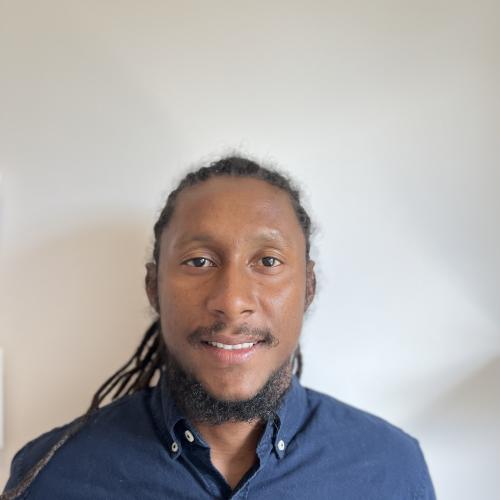PhD
Political Science
Florida International University
2022

Jermaine is an Assistant Professor of Political Science at Howard University. His primary research interest focuses on the nexus between emergency powers and criminal justice in colonial and postcolonial Jamaica. His work has been published in the Canadian Journal of Latin American and Caribbean Studies and Political Studies Review. He primarily teaches courses in comparative politics and political theory. He holds a Ph.D. from Florida International University.
Political Science
Florida International University
2022
Political Science
Florida International University
2020
Latin American Scholarship Program for American Universities (LASPAU) Fulbright Grant
Fulbright Program (2017-2019)
https://journals.sagepub.com/eprint/BSVBG8AW5ZEMR9IH4Y4W/full
Emergency powers have always posed a threat to the rule of law, particularly standards of legality and respect for individual rights. Although system-wide impacts to legal norms and the rights of the general population continue to pose real dangers, we argue that the most egregious violations of the rule of law in liberal democratic societies in times of emergency now tend to be restricted to historically marginalized groups depicted as disorderly, dysfunctional, or pathological. As exemplified in official responses to Hurricane Katrina in New Orleans, reports of rampant child abuse in aboriginal communities in Australia’s Northern Territory, and high levels of homicide in Jamaica, emergency powers are often applied in discriminatory ways that reflect and reinforce existing disparities in race, gender, and class. Even when emergency measures are nominally adopted for the entire population, their application is often limited to highly specific geographical areas that place marginalized groups into “zones of otherness.” The result, we argue, is to establish a de facto system of legal pluralism that subjects subordinate groups to enhanced forms of regulation, surveillance, detention, and violence, but generally leaves established legal rules and protections intact for everyone else.
Democracy is frequently used as a catch-all term denoting a particular system of government, especially one which is predicated on the following attributes: popular sovereignty, the rule of law, the advocation of a number of rights, and freedoms inter alia. But what does democracy really mean? What are some of its main varieties? To answer these questions, I examine some of the more normative and prominent models of democracy to highlight similarities and differences in order to better improve our understanding of their associated concepts, norms, and problems. The focus here is to highlight some modern and contemporary views on the following competing schools of democratic thought – liberalism, republicanism, and deliberative/discourse theory. This broad survey of the theoretical land per se is particularly aimed at identifying broad central tenets of different democratic thrusts that produce different views of citizenship, law, rights, society, and nature of the political process. To counteract concept malformation in political science, we need to particularly engage with what different versions (their respective conceptualizations) of democracy tell us about their respective processes and eventual outcomes. Furthermore, we also need to engage with the big ought/should (normative thrusts) of these variants of democracy in order to better understand empirical political life, especially the tensions between theory and practice that arise in liberal- and republican-styled democracies. The time is ripe for such a conversation given the current worries that exist about the state of democracy, especially if we are in a new era of democratic backsliding.
https://www.taylorfrancis.com/chapters/edit/10.4324/9781003434290-3/reflections-democracy-jermaine-young
Emergencies/exceptions are presumed to be disruptive events which are inherently dangerous to the normal workings of a nation-state. Declarations of emergency by governments of all types around the world to deal with a variety of crises have prompted Italian political philosopher Giorgio Agamben to characterize them as “the dominant paradigm of government” (2005). This paper explores the Jamaican government’s penchant for using emergency powers to curb high homicide rates. During 2017–2020, Jamaica has declared and operated several States of Emergencies (SOEs) and Zones of Special Operations (ZOSOs) to address what are usually considered ordinary criminal justice matters. In this paper, I argue that the resulting anomalies, such as arbitrary plus extended detentions and internal extraordinary renditions, have placed Jamaica in a quasi-permanent “state of exception” in which the constitutional rights of some citizens have been compromised in the name of state security. This paper contributes to the growing literature on how blurry the lines between norm and emergency/exception have become across different global jurisdictions.
https://doi.org/10.1525/esr.2025.48.1.6
This paper examines the phenomenon of antihaitianismo and its dangers in the Dominican Republic by exploring how racial discrimination is institutionalized through legal and extralegal frameworks, leading to the denationalization of Dominicans of Haitian descent. By analyzing recent legal reforms and state actions, this paper reveals how antihaitianismo operates as a mechanism of exclusion, creating a racialized category of noncitizenship. The study highlights the duality of law, showing how extralegal measures are used to perpetuate racial hierarchies and deny basic rights to the Haitian-descended Dominican population. Through a critical review of citizenship laws and policies across all three branches of government, spanning the 20th and 21st centuries, this paper demonstrates how extralegality has been stretched to its limits and used to profoundly discriminate against the Dominico-Haitian community, leading to statelessness for families and individuals as well as consequent mass deportations. The paper aims to contribute to the growing understanding about extralegal machinations and their ability to create and foster discrimination and harm for distinct communities, while maintaining the status quo for everyone else.